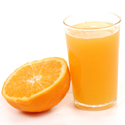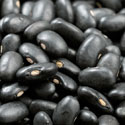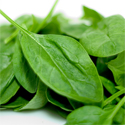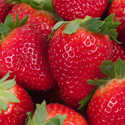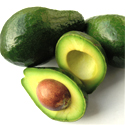Sources of Folate and Folic Acid
"Folic acid" is the term used for the man-made or synthetic form of the B vitamin folate. Folic acid is added to vitamin or nutritional supplements and grain foods that say "enriched" on the label. The synthetic form of the vitamin (folic acid) is more easily absorbed by the body than the natural form of the vitamin found in certain foods.
Vitamin Supplements
Multivitamin
Most multivitamin supplements contain folic acid along with other vitamins and minerals. Check the Nutrition Facts panel and look for a multivitamin that provides 400 micrograms, or 100% of the Daily Value, of folic acid.
Folic Acid
Folic acid supplements contain only folic acid (no other vitamins or minerals). They are smaller and may be easier to swallow than multivitamins. Look for a folic acid supplement that provides 400 micrograms of folic acid per tablet.
Taking Supplements
Taking a multivitamin every day is the easiest way to ensure an intake of the recommended amount of folic acid. However, sometimes it is difficult for people to remember to take a multivitamin. They may have trouble swallowing a multivitamin or they do not take one for other reasons. Here are some tips to help:
- Put the bottle in a location where you will see it every day. This may be near your toothbrush, with birth control pills or other medications, or in another visible, but safe spot that is out of the reach of children.
- If you find it difficult to swallow a multivitamin, try chewable or liquid vitamins or a folic acid supplement, which is smaller and may be easier to swallow.
- If you are concerned about the expense of multivitamins, buy store brands that may be less expensive than name brands. You'll still get the folic acid you need.
Fortified Foods
Many ready-to-eat breakfast cereals have 100-400 micrograms of folic acid per serving. Check the Nutrition Facts panel to be sure. Ready-to-eat breakfast cereals, especially those that contain 400 micrograms of folic acid per serving, are a great way to get folic acid if you don't take a multivitamin or folic acid supplement every day.
Grain products that say "enriched" on the label have folic acid added to them. This includes bread, rolls, rice, pasta, instant oatmeal, and other foods made from enriched flour (e.g., crackers, cookies, and flour tortillas). At this time, whole grain foods do not have folic acid added to them.
In 2016, the United States Food and Drug Administration allowed voluntary addition of folic acid to corn masa flour. Corn masa flour is used to make tortillas, tortilla chips, tamales, taco shells, and corn chips. Since this addition is voluntary, be sure to check the ingredient list on the package of corn masa flour to see if it contains folic acid.
Foods imported from other countries may not contain folic acid. Check the ingredients list on the label to be sure.
Folate-Rich Foods
Some foods contain the natural form of folate, called food folate. The body does not absorb food folate as easily as the folic acid in vitamin supplements and enriched grain foods. However, foods with food folate can help you increase your folate intake.
Here are some examples of folate-rich foods:
- Dark green leafy vegetables such as spinach, collard greens, mustard greens, turnip greens and broccoli.
- Legumes such as dried beans and peas (black-eyed peas and black, pinto, kidney and navy beans) and peanuts.
- Beef liver.
- Asparagus.
- Orange juice and oranges.
- Avocado.
- Strawberries.

